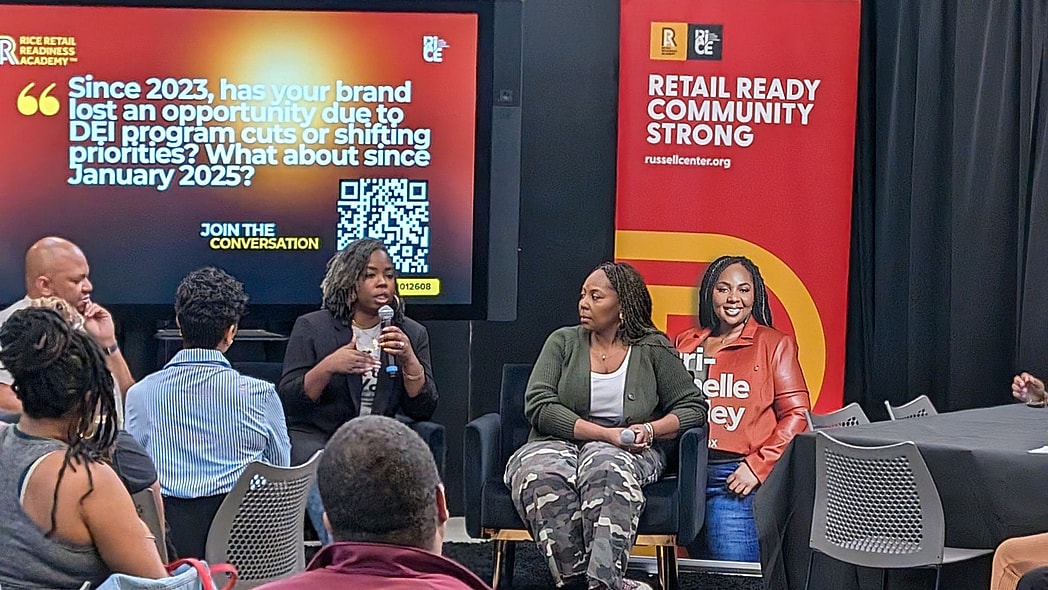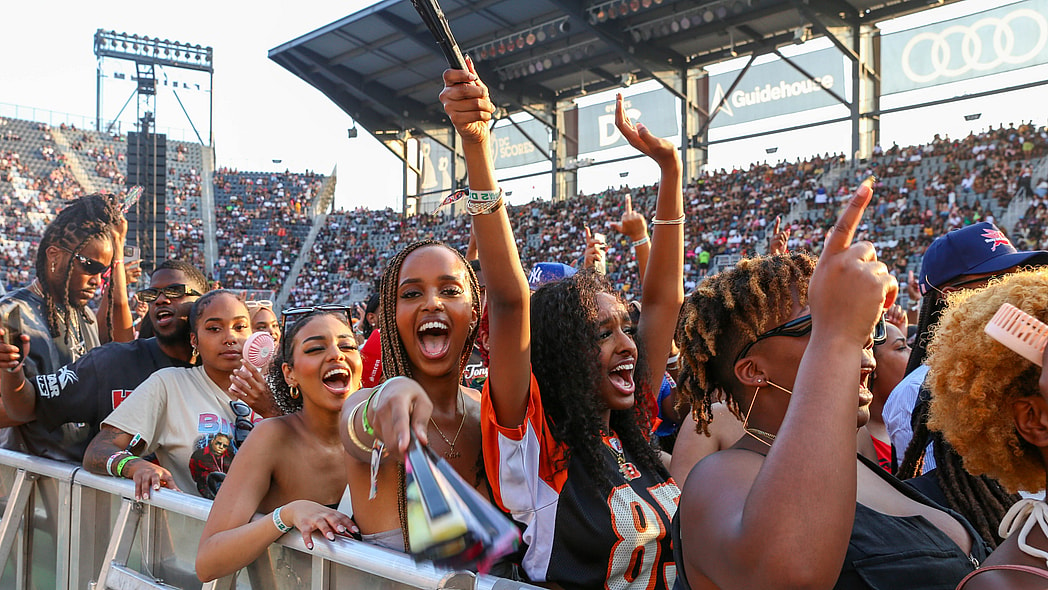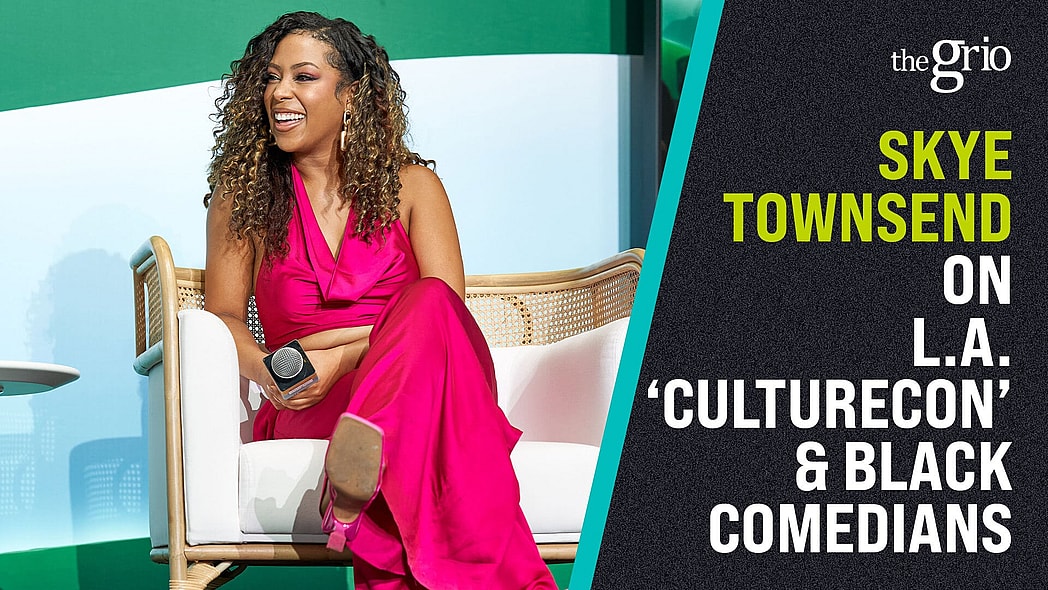Running a business is difficult at the very least; running a Black-owned business can be an uphill battle.
While Black entrepreneurs fight through systemic systemic disparities, limited access to capital and multiple barriers to entry, many fall victim to their respective industries’ pitfalls, forcing them to shut down before ever taking off. It’s a struggle that’s currently playing out in beauty aisles across America. Despite a significant increase in Black-owned brands within major retailers like Sephora, Ulta Beauty and Target, founders still face difficulty in scaling their businesses.
“Understand there are Black brands with eight figures in revenue that cannot raise money. There are many of us with retail deals on the table and cannot raise money — literally me and my founder tribe,” said Devin McGhee Kirkland, co-founder of adaptogenic beauty brand Deon Libra, on Instagram. “Ulta, Sephora, Target, Walmart, [Urban Outfitters], Anthropologie, and more are knocking at all our doors, and none of us can make the commitment because the cash isn’t there. So, scale where?!”
As Kirkland highlighted in her social media posts, “Black CPG [consumer packaged goods] brands are closing daily” due to a lack of investors and funding to survive in the industry.
Essence Iman, founder of the Black-owned skincare brand The Established, recently announced the closure of her business. Despite previously receiving beauty awards and grants, she reportedly was forced to shut down due to constant rejection from investors and a lack of funding.
The announcement by Iman, an alumnus of Glossier’s Black beauty grant program, caught the attention of Roya Shariat, head of impact at Glossier. Shariat told Business of Fashion that Glossier felt “gutted” by the closure of brands it supported, adding that the news triggered a conversation among other Black business owners. The brand is motivated to amplify its efforts in support of Black beauty companies.
“NO ONE is investing in us (Black founders) … Everyone showed up with their mentorship and grant money after George Floyd and vanished,” Kirkland, also a previous Glossier grant recipient, said in a message to Shariat, per Business of Fashion. “Thank you for continuing to do the work with the Glossier grant. If we could apply again, I know so many of us would.”
After learning about The Established’s closure and the struggles of other grant alumni like skincare brand Ceylon, Glossier expanded its annual grant award. Black beauty founders can apply for the Glossier Grant Program, which awards $50,000 each to four emerging Black-owned brands. Determined to invest in the long-term success of Black beauty entrepreneurs, Glossier announced its inaugural Alumni Award, which will grant $100,000 to a former awardee to scale their business sustainably.
Recommended Stories
“We learned that many of our alumni are in a really tough market right now. That tough market is across CPG [consumer packaged goods] and beauty — but Black founders are being hit disproportionately hard,” Shariat told BoF. “All grantees will go through four months of dedicated business programming and support from the Glossier team, with specific resources designed to help past alumni navigate newer business challenges such as retail partnerships … the program isn’t meant to revive a brand already in dire straits, but instead will provide meaningful support to a brand in need of a jolt forward.”
In 2020, following the murder of George Floyd and a spike in the Black Lives Matter movement, large brands and corporations publicly expressed their commitments to diversity, equity and inclusion. As DEI became a buzzword and consumer consciousness grew, brands like Glossier began investing in Black-owned businesses across industries. However, four years later, it seems as though many corporate commitments to Black-owned brands came with a time limit; the founders who once received thousands in funding are struggling to get investors today.
Crunchbase data found that venture funding for Black-founded startups dropped 71% in 2023, down to $705 million after totaling $4.9 billion in 2021. Kirkland said the lack of venture funding isn’t due to lack of effort from Black founders but rather the “f**ked up investment climate.”
From investors reportedly overpromising and underdelivering, to Black founders being unfairly judged and compared to white counterparts, Kirkland says Black founders are constantly given “the runaround.” She explained how investors encourage her to secure a retail partnership or raise money from her circle before they consider investing. Friends and family investment rounds are common for startups and small businesses, but the method typically isn’t as beneficial for Black founders due to the racial wealth gap.
“Most Black families don’t just have hundreds of thousands of dollars or millions to invest,” Kirkland said, noting how her friends and family invested over $100,000 in her brand during the pandemic. “This ain’t no fairytale world. [Investors] are just tone deaf and clueless.”
In recent years, founders like Iman, Patrick Boateng of Ceylon and Ezinne Iroanya of Sknmuse, reported making significant adjustments to their businesses in light of continuous rejections from investors. Some founders have forfeited their salaries and started full-time jobs to stay afloat.
“The financial pressures were so enormous and I got tired of begging — I didn’t want to do it another time,” Iman told BoF. “There’s a piece of it that’s very demoralizing — and that you have to accept [if you continue].”
Though Glossier says its grant initiative isn’t meant “to be a life raft” that revives struggling businesses, the cosmetic brand hopes to inspire other industry leaders to support Black beauty founders.
“What we want to see from the industry is more programs like ours because that means more founders of color get a seat at the table, and they get a chance,” Shariat said.
The moral of the story according to Kirkland?
Stop playing with Black founders.










